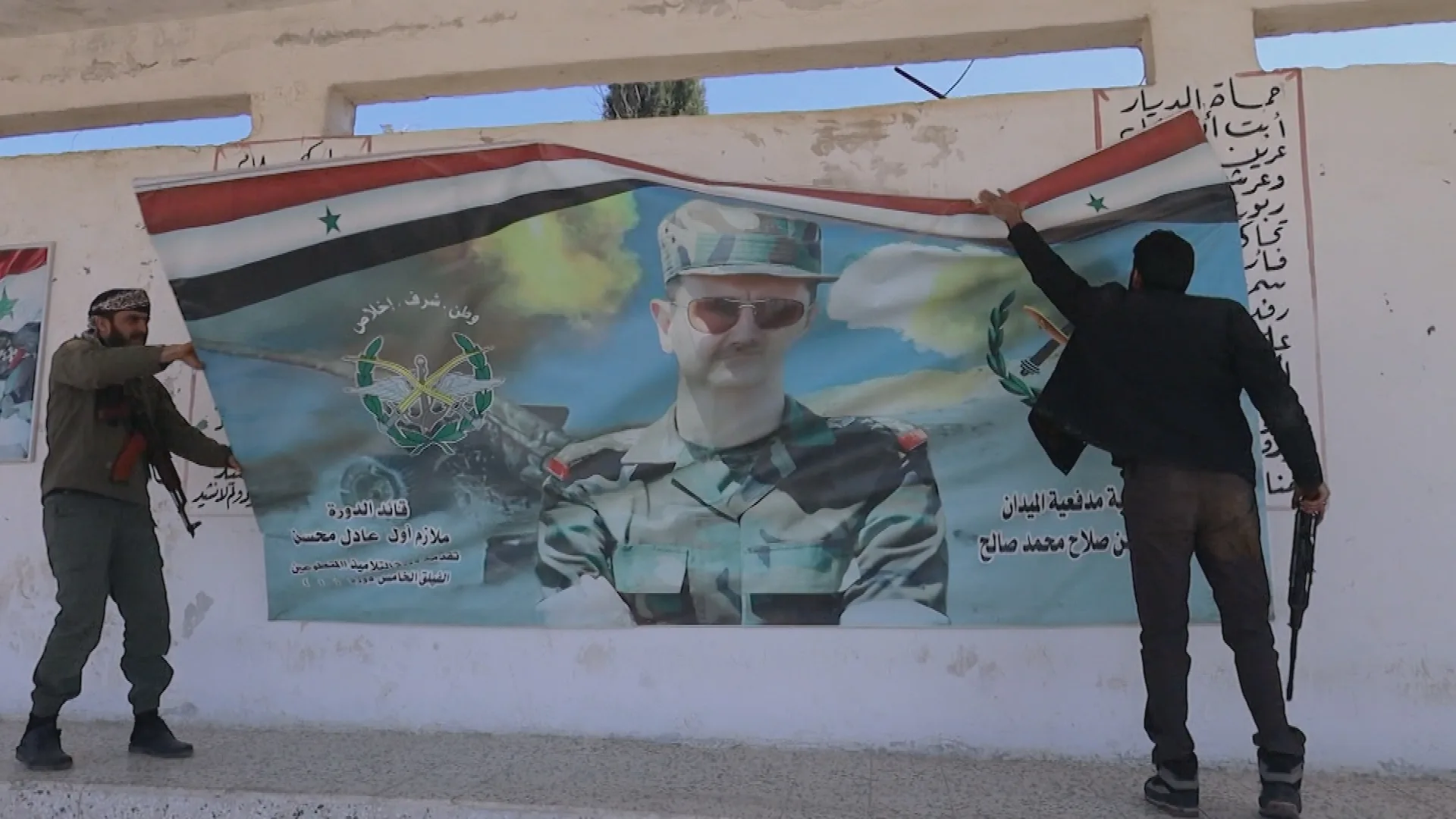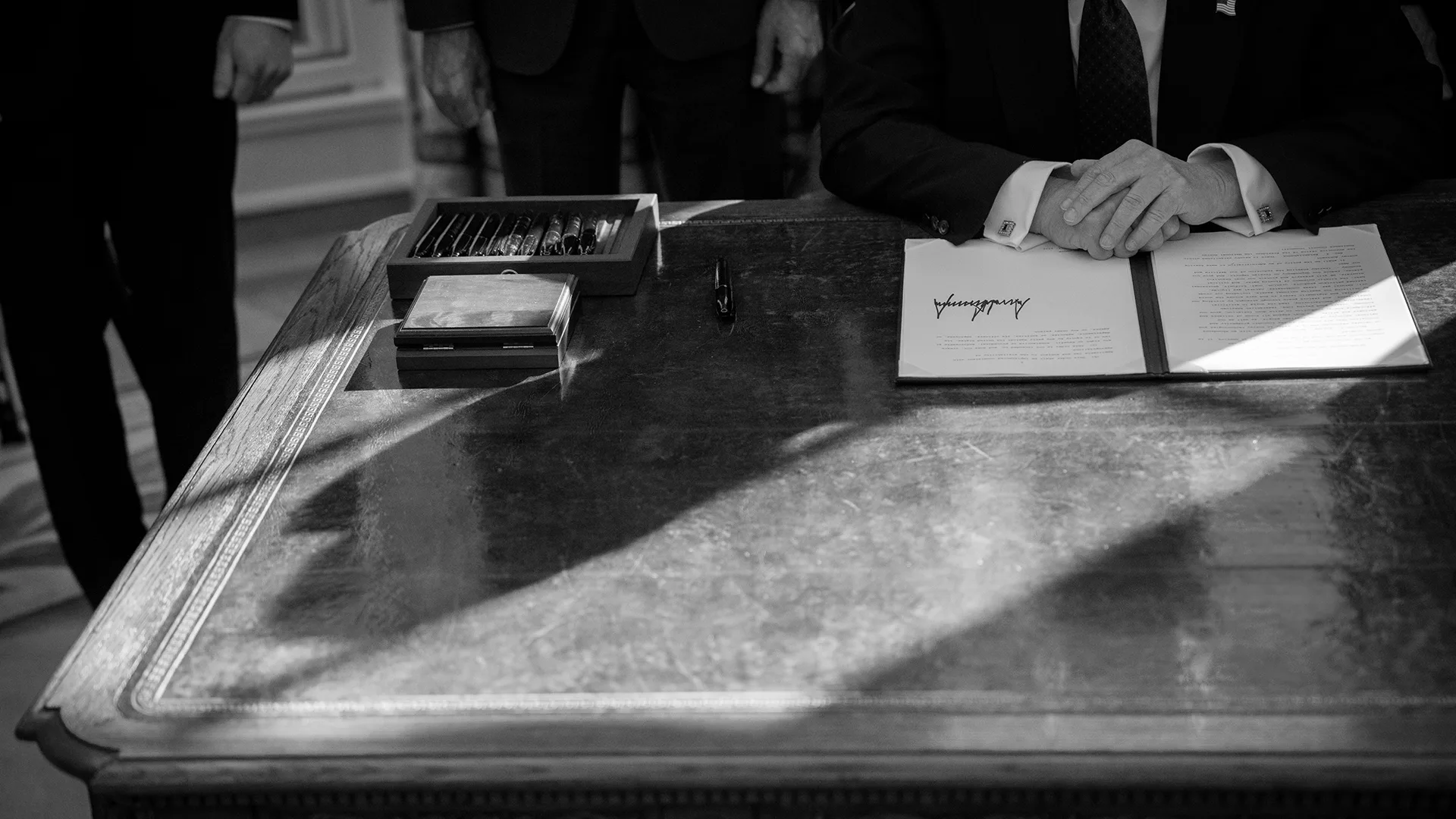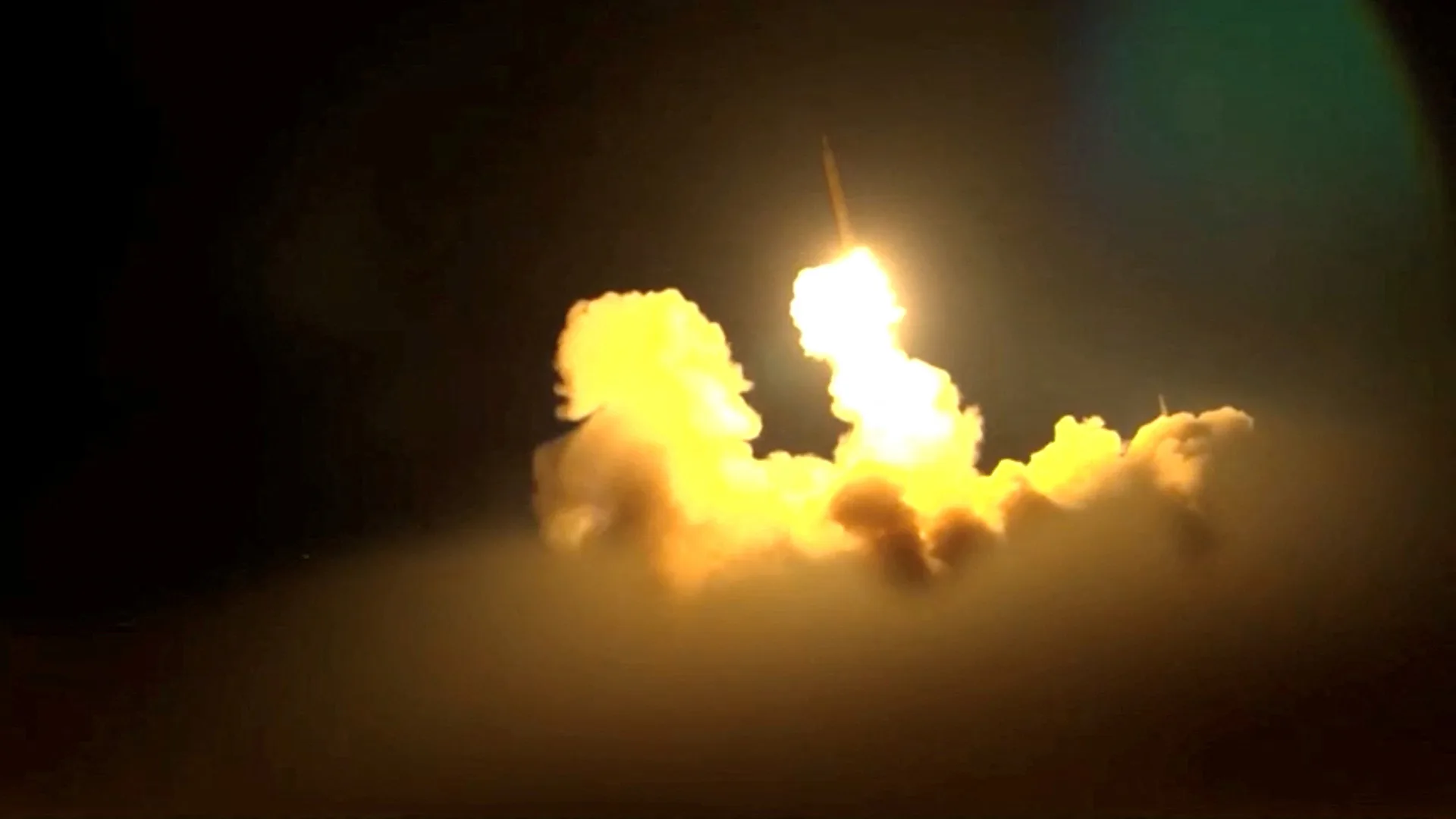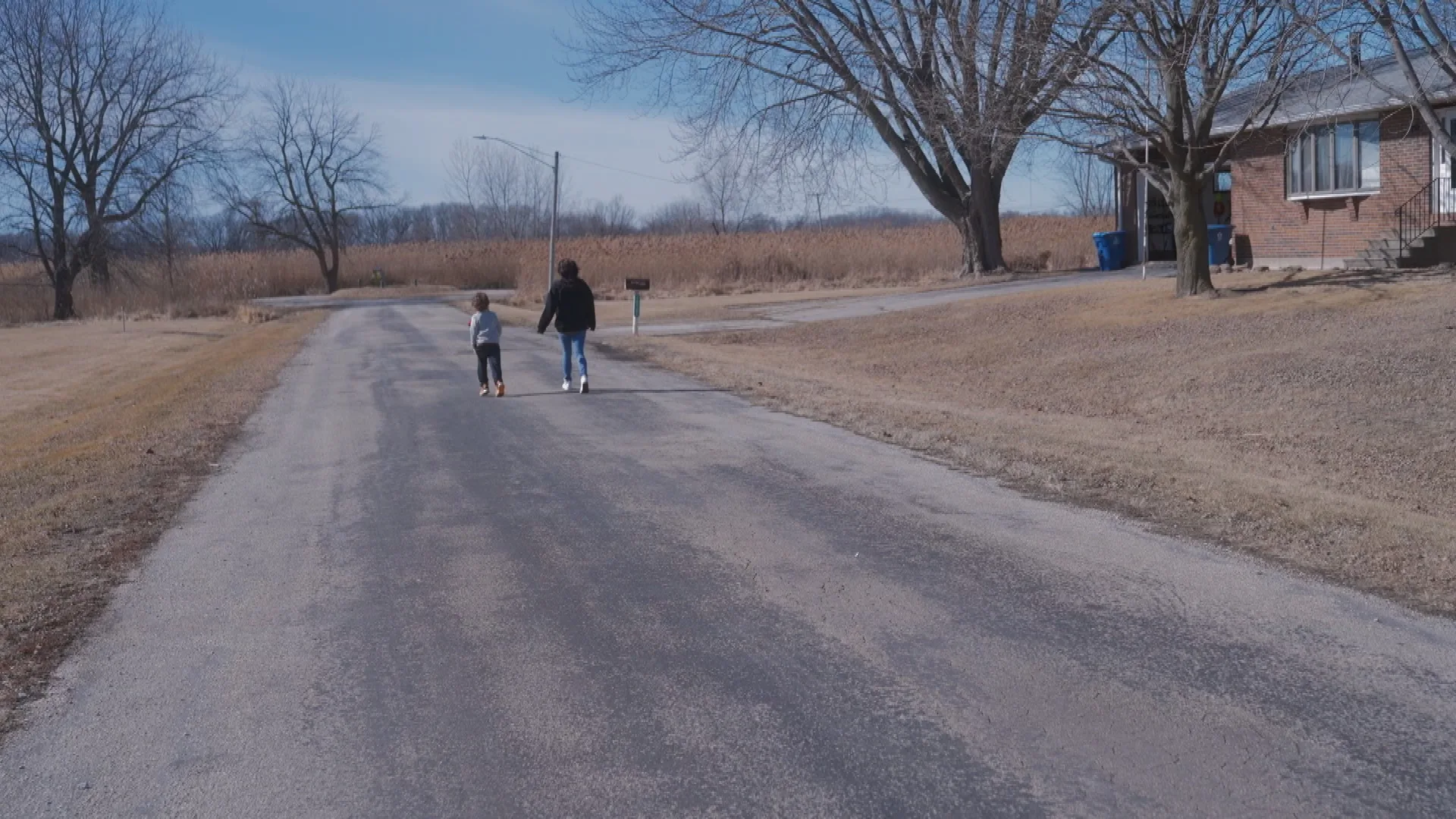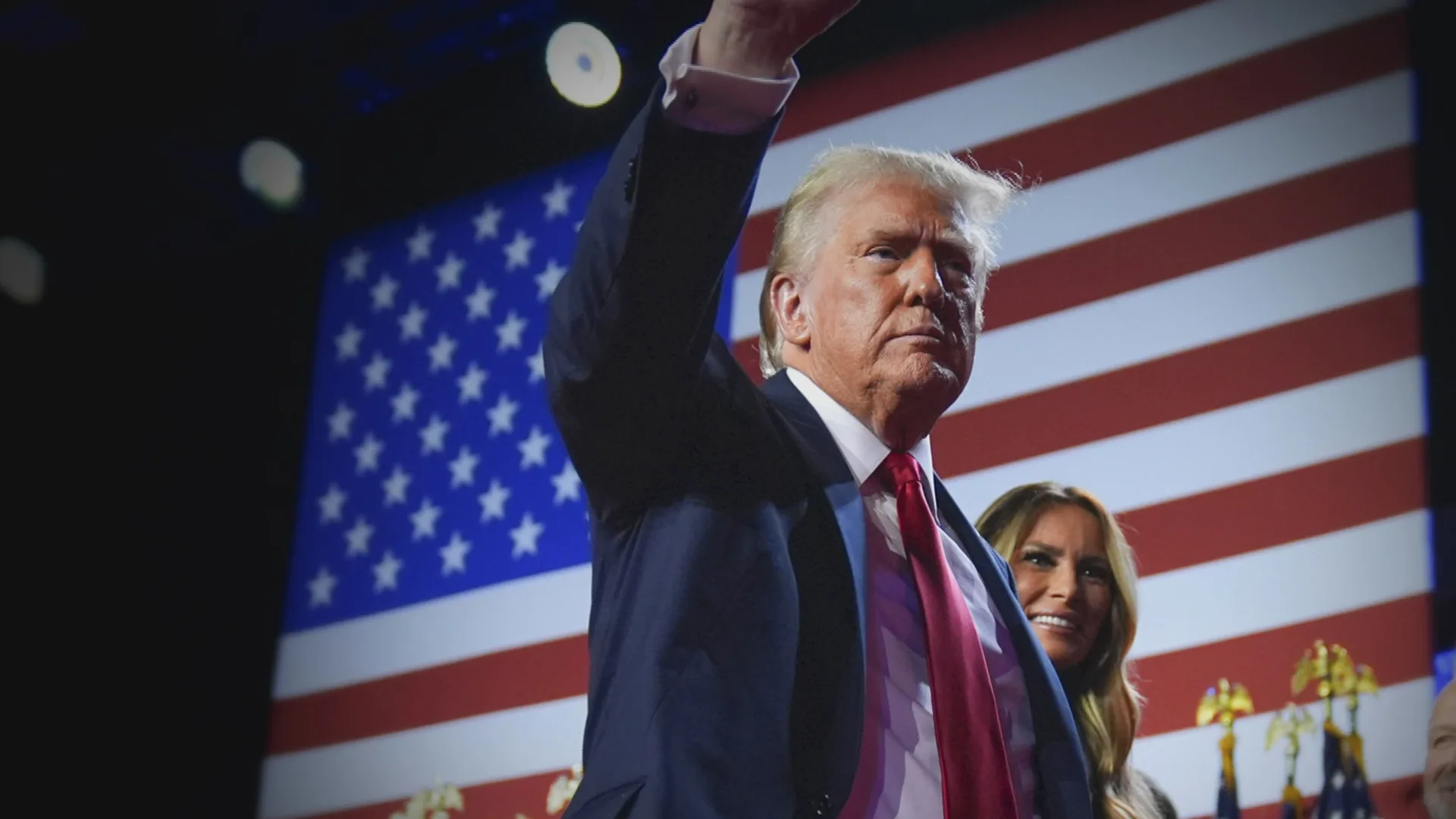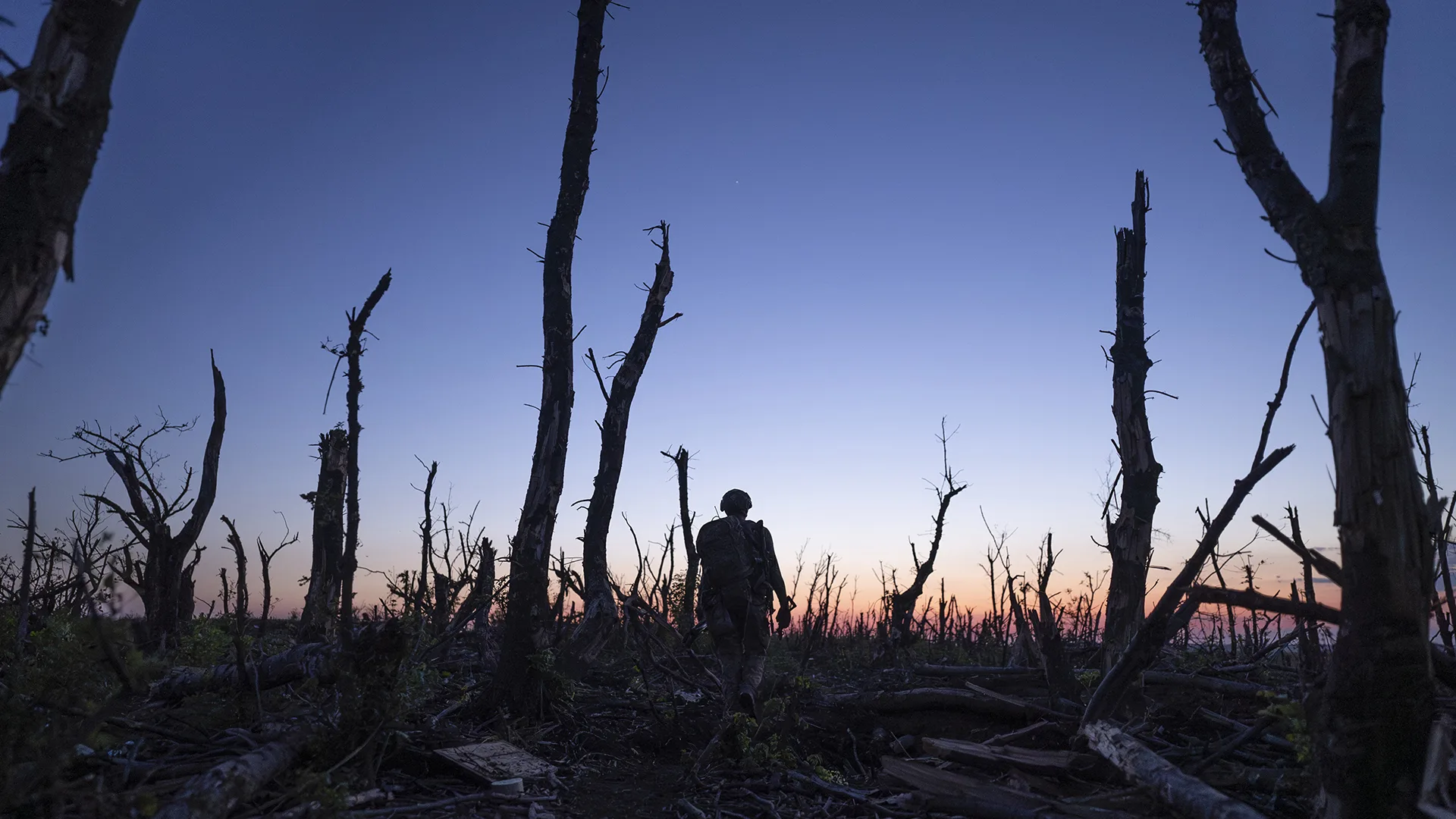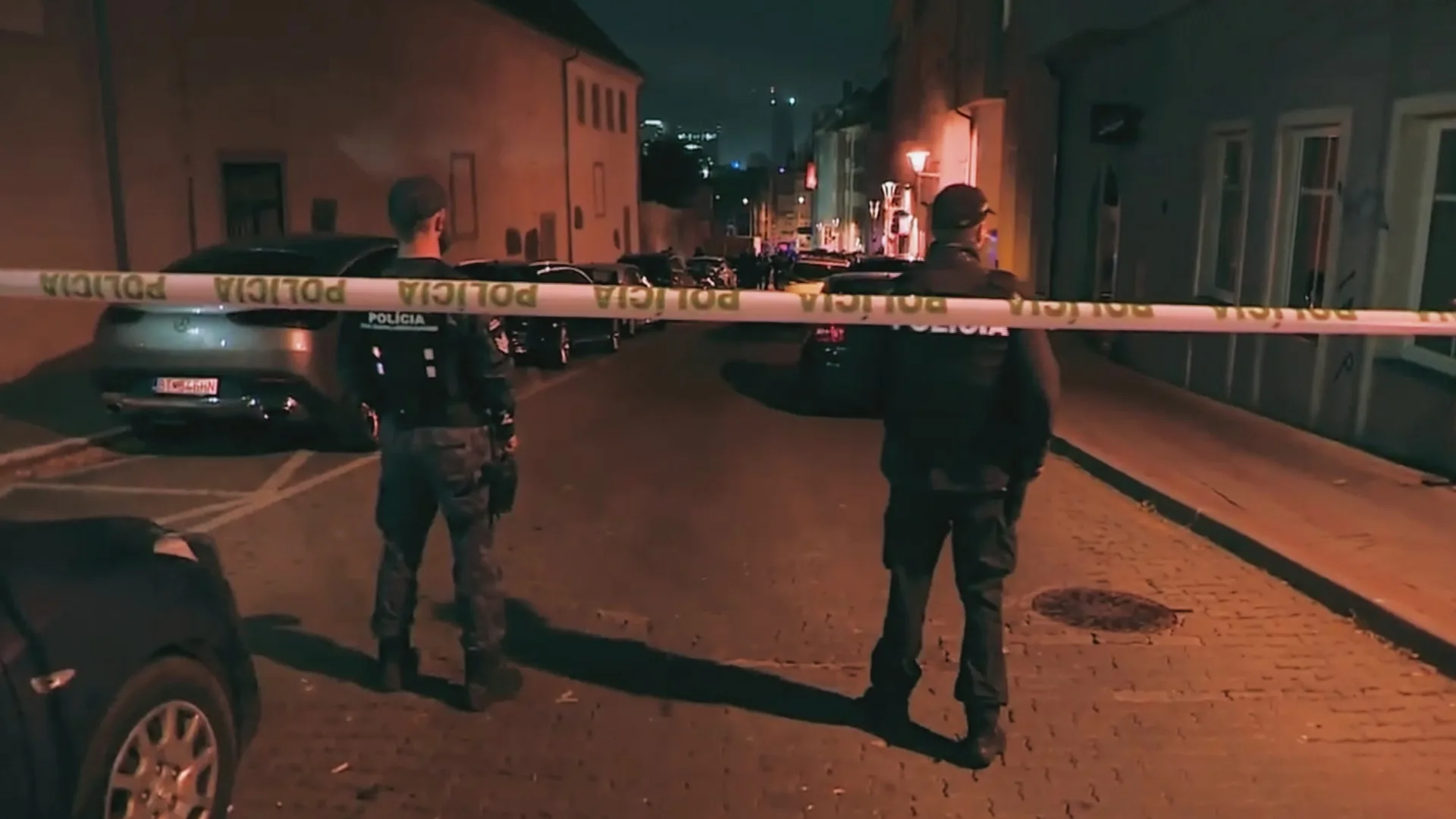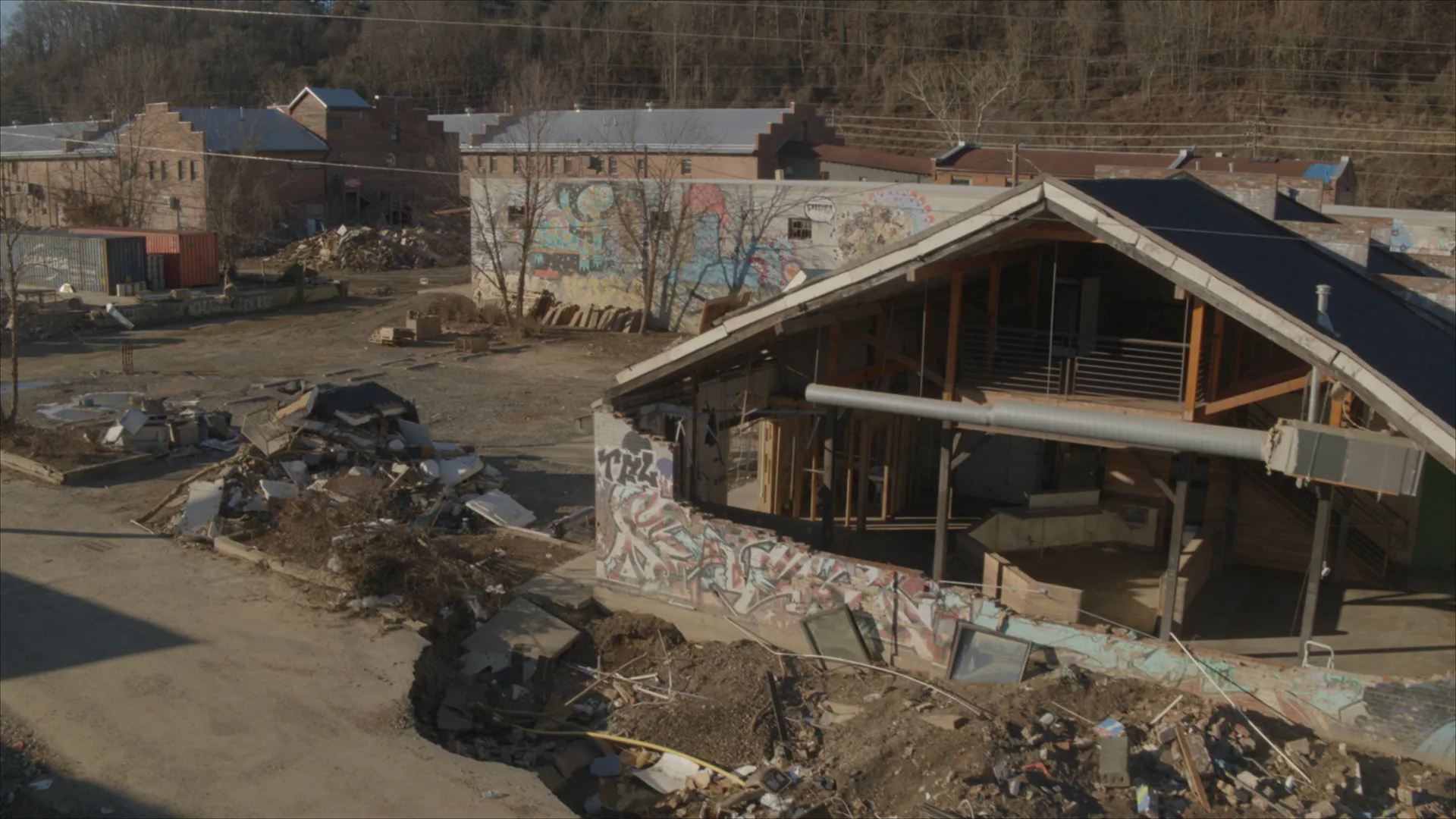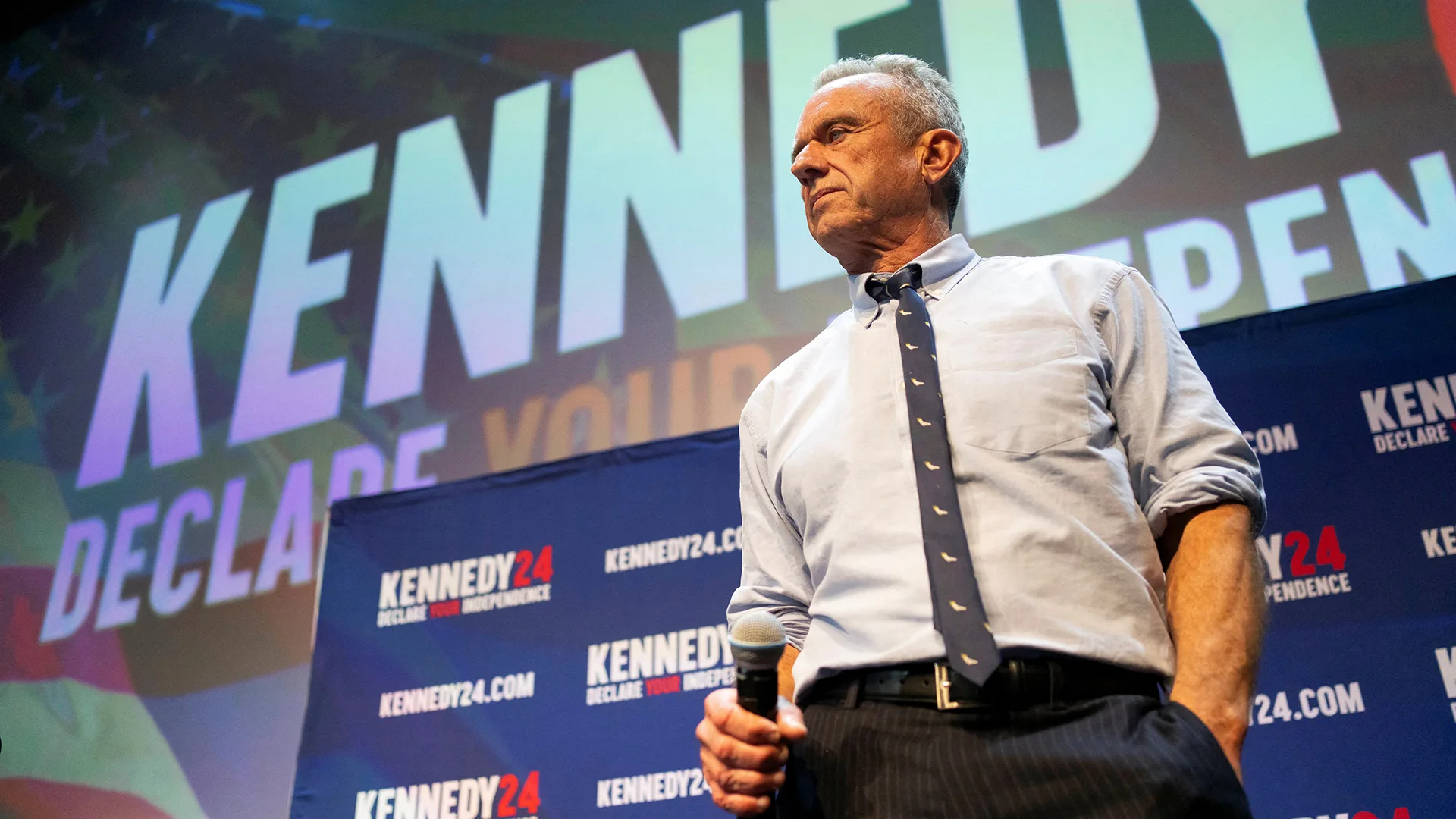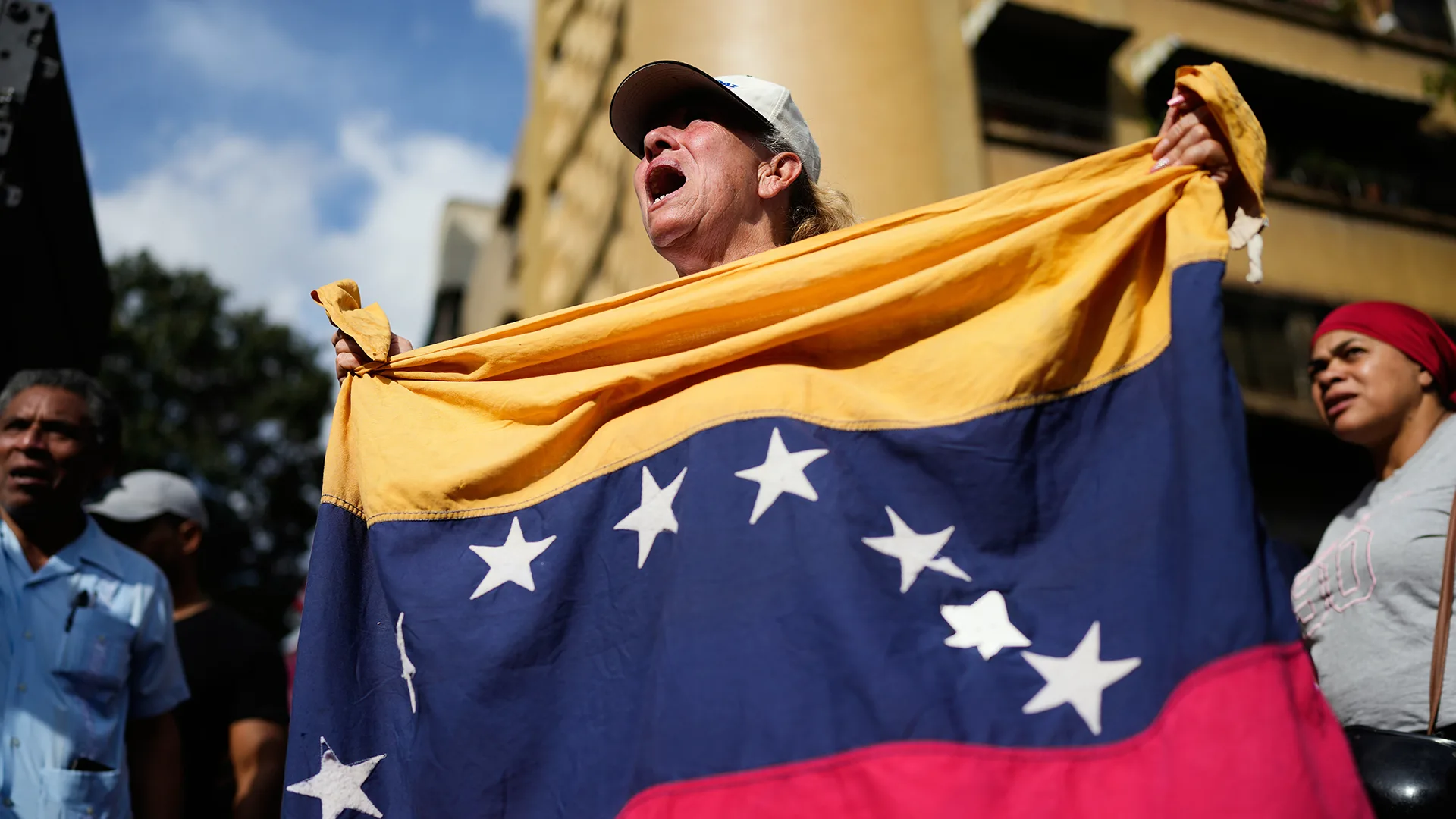Putin vs. the Press
September 26, 2023
53m
The story of one journalist’s battle to defend free speech in Putin’s Russia
Putin vs. the Press
September 26, 2023
53m
Share
The story of one journalist’s battle to defend free speech in Putin’s Russia. With unique access, FRONTLINE follows Nobel Peace Prize-winner Dmitry Muratov as he fights to keep his newspaper alive and his reporters safe amid a government crackdown.
This documentary premiered online on Sept. 12, 2023, and had its broadcast premiere on Sept. 26, 2023.
Directed by
Produced by
Transcript
Credits
Journalistic Standards
Support provided by:
Learn More
Most Watched
The FRONTLINE Newsletter
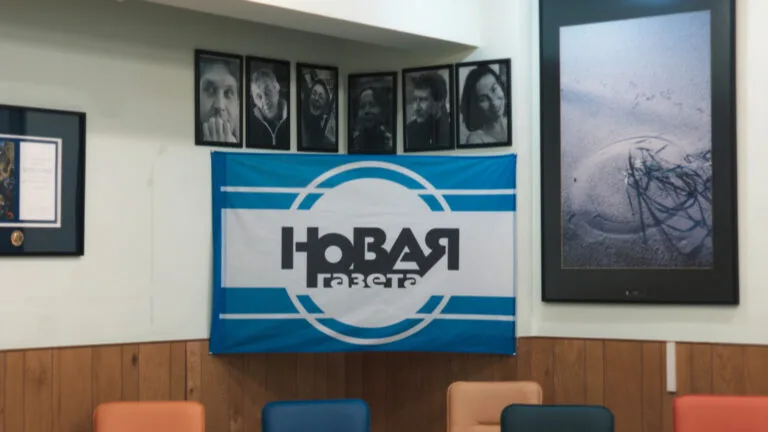
How Russia’s Press Freedom has Deteriorated Over the Decades Since Putin Came to Power
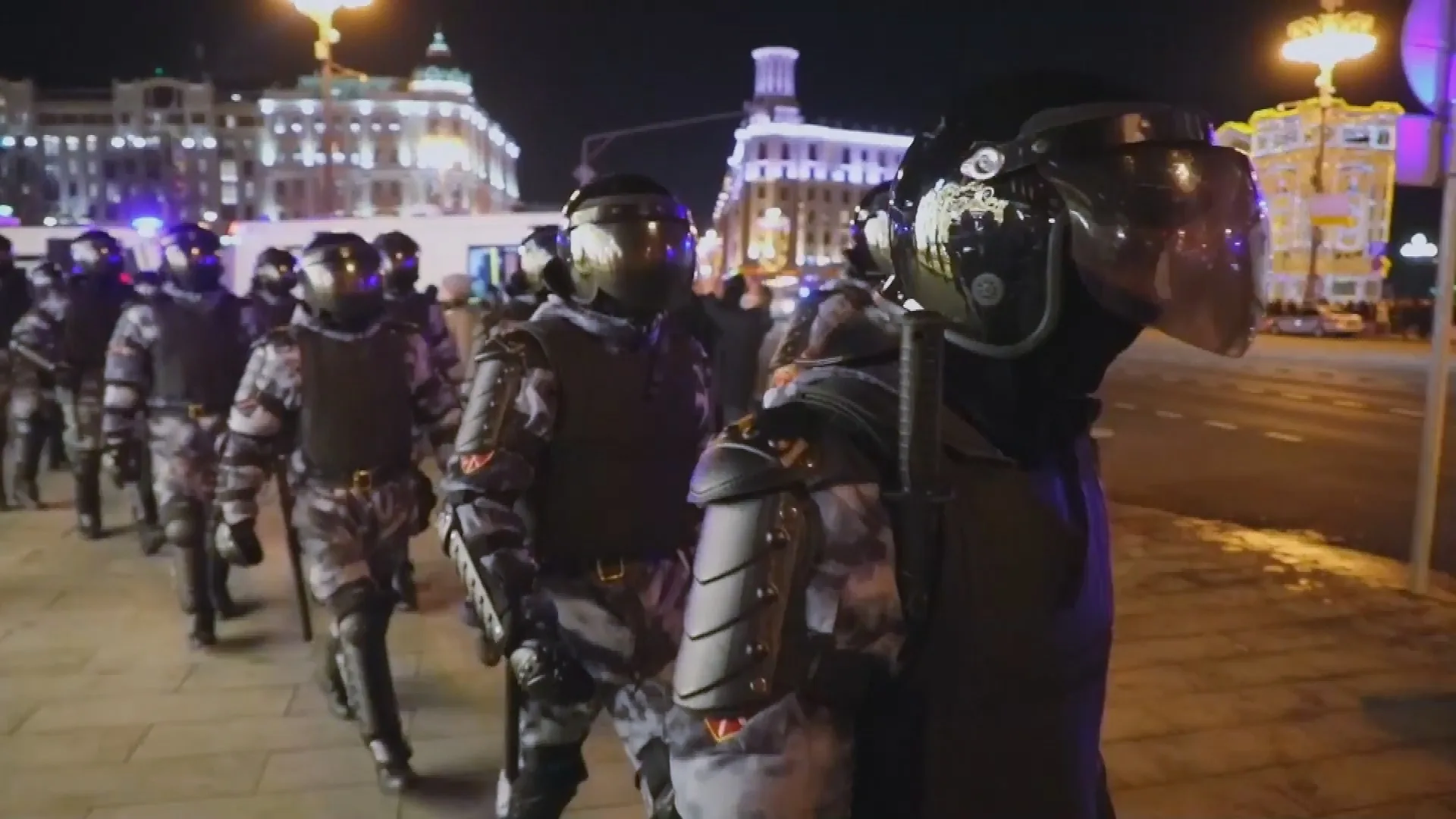
Putin’s War at Home
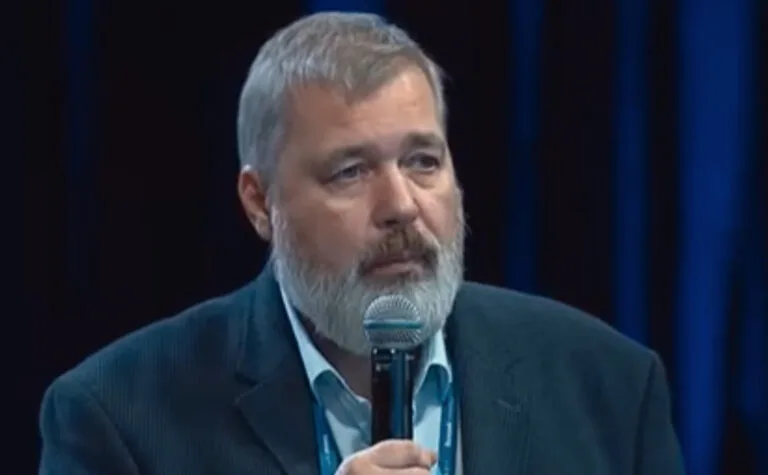
How Russian Journalist Dmitry Muratov, Now Declared a ‘Foreign Agent,’ Faced Off With Putin in the Past
Related Stories

How Russia’s Press Freedom has Deteriorated Over the Decades Since Putin Came to Power
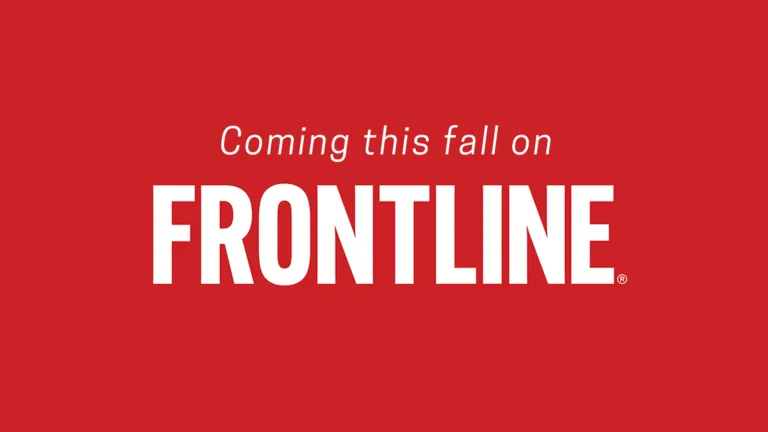
FRONTLINE’s New Season Is Here

How Russian Journalist Dmitry Muratov, Now Declared a ‘Foreign Agent,’ Faced Off With Putin in the Past
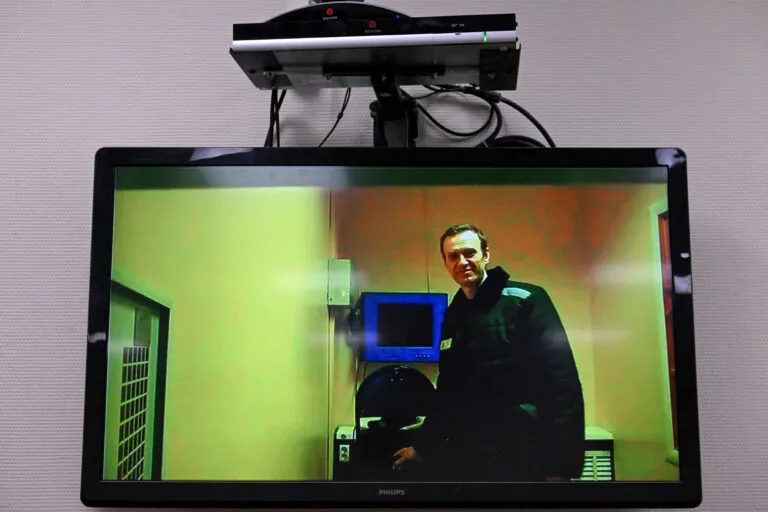
Following Reported Death of Putin Critic Alexei Navalny, A Look at Dissent in Putin’s Russia
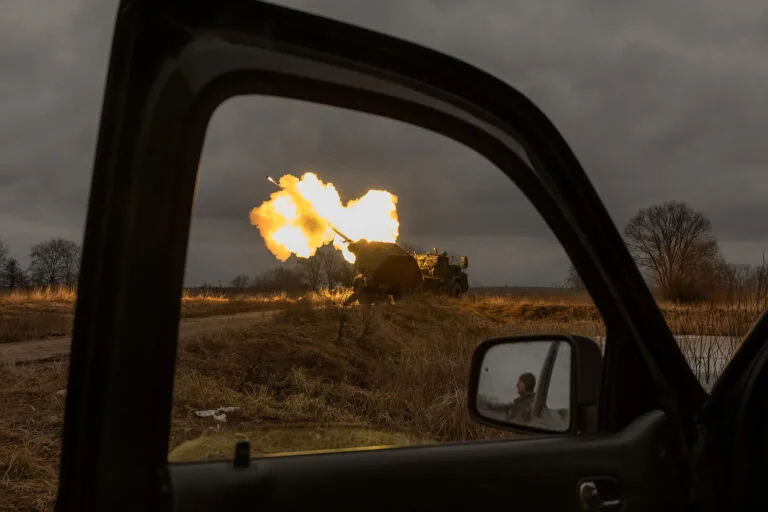
Russia’s Invasion of Ukraine, Two Years Later
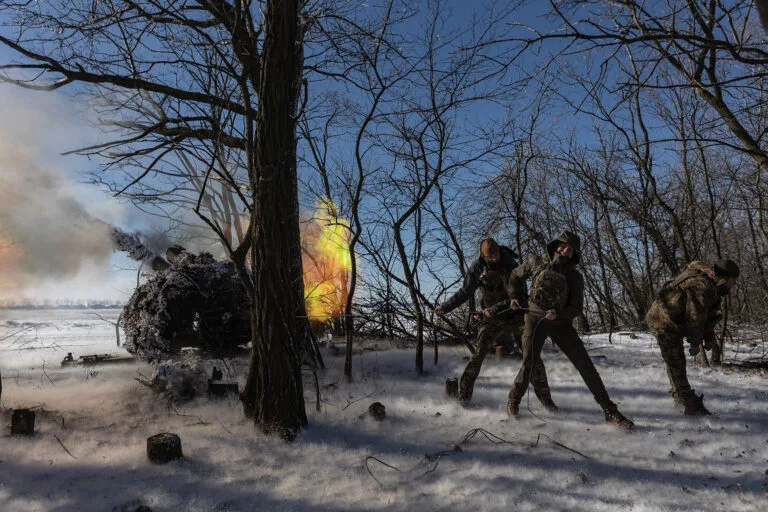
Russia’s War on Ukraine Enters Its Fourth Year

Putin’s War at Home
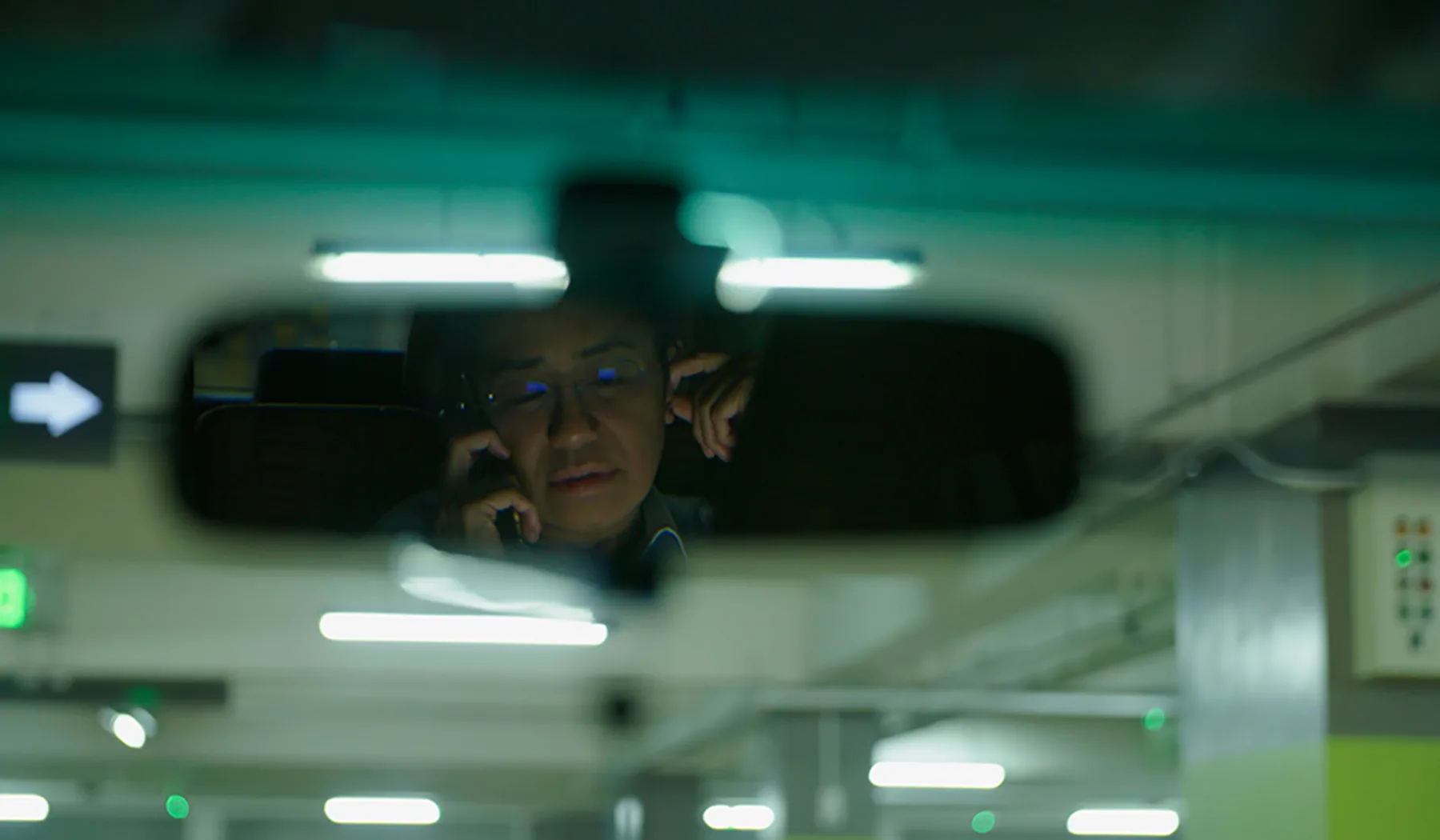
A Thousand Cuts
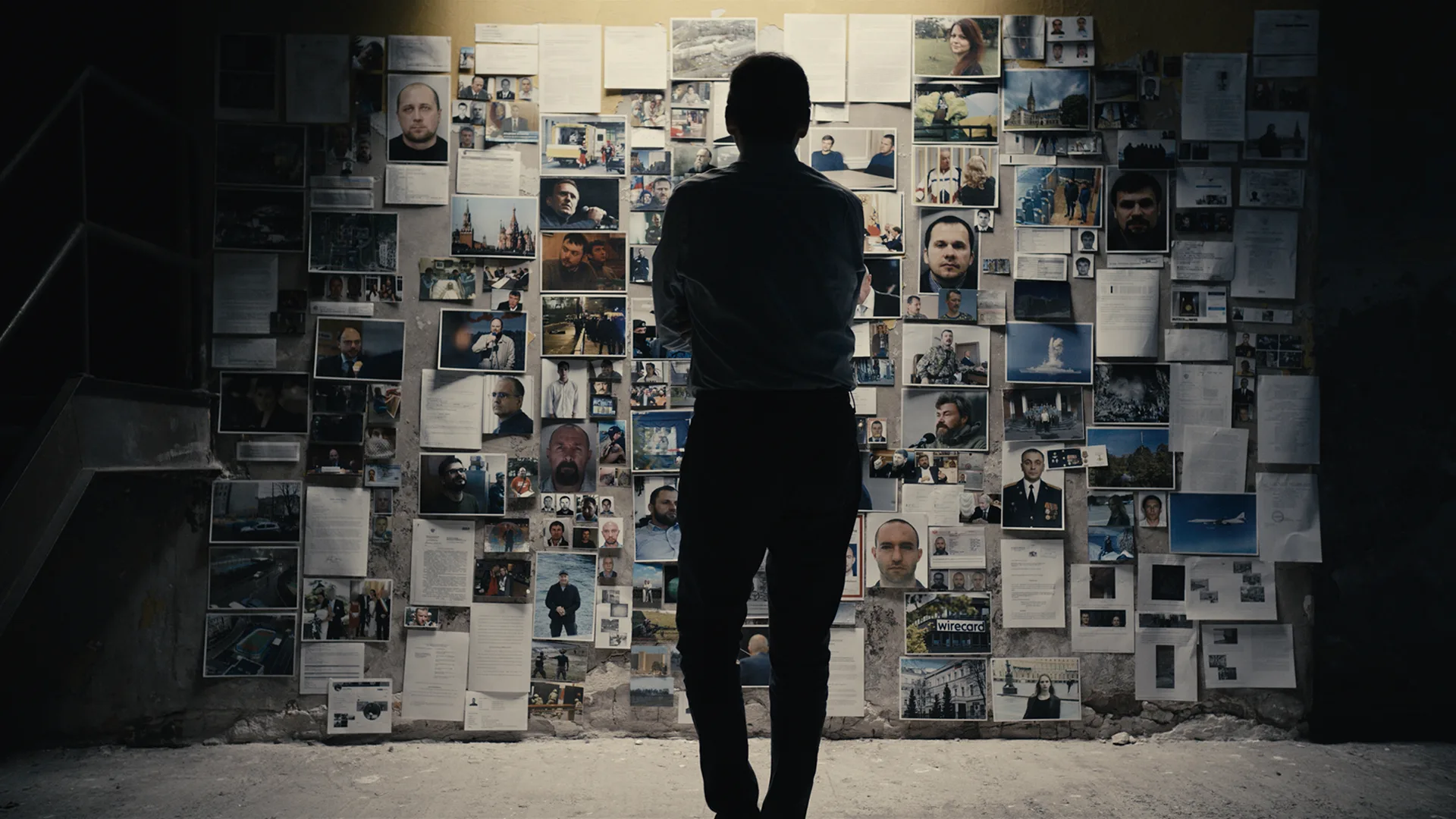
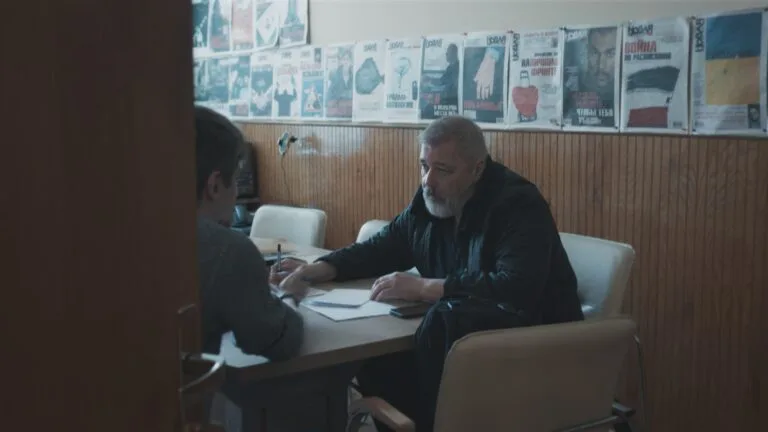
From Russian Newspaper Editor to ‘Foreign Agent’
Related Stories

How Russia’s Press Freedom has Deteriorated Over the Decades Since Putin Came to Power

FRONTLINE’s New Season Is Here

How Russian Journalist Dmitry Muratov, Now Declared a ‘Foreign Agent,’ Faced Off With Putin in the Past

Following Reported Death of Putin Critic Alexei Navalny, A Look at Dissent in Putin’s Russia

Russia’s Invasion of Ukraine, Two Years Later

Russia’s War on Ukraine Enters Its Fourth Year

Putin’s War at Home

A Thousand Cuts


From Russian Newspaper Editor to ‘Foreign Agent’
Moscow, Russia
Kazansky Station
April 7, 2022
DMITRY MURATOV, Editor-in-Chief, Novaya Gazeta:
[Speaking Russian] I took train number 10, which was going on the Moscow to Samara route. I was going to meet my mother, whose birthday I’d missed. And three minutes before the train’s departure a man burst through the open door, shouted my name. I answered, “Yes.” After that, he started pouring
terrible, stinking red liquid on me. He ran out of the compartment. I somehow wiped the paint from my eyes, grabbed my phone and ran after him.
You bastard!
He was already standing next to a policeman.
He came into my compartment. He shouted, “Muratov.” He covered me in paint, shouting, “For our boys.” I don’t know what this means. Take your mask off.
I understand the message they were sending. “Shut up. And keep your newspaper quiet.”
Four Months Earlier
Oslo
December 10, 2021
NOBEL PEACE PRIZE PRESENTER:
The Nobel Peace Prize for 2021 has been awarded to two outstanding representatives of the press: Maria Ressa, working in the Philippines, and Dmitry Muratov, working in the Russian Federation.
DMITRY MURATOV:
[Speaking Russian] Does everybody have their headphones? On the morning of Oct. 8, I received a phone call from my mother. She wondered how things were going. Well, Mom, we’ve got the Nobel Prize. “That’s nice. Anything else?” [Laughter] Look here, Mom. I’ll tell you everything.
The world has fallen out of love with democracy. The world has begun to turn toward dictatorship. In my country, and not only there, it is popular to think that politicians who avoid bloodshed are weak, while threatening the world with war is the duty of true patriots.
Moscow
The Offices of Novaya Gazeta
DMITRY MURATOV:
[Speaking Russian] We are journalists, and our mission is clear: to distinguish between fact and fiction. But journalism in Russia is going through dark times. Over the last few months over 100 journalists, media outlets and human rights defenders have been branded as “foreign agents.” In Russia, this means “enemies of the people.” Democracy needs rehabilitation. Let us put it bluntly. If we give up on democracy, we agree to war.
Kyiv
February 24, 2022
MALE NEWSREADER:
The dawn chorus that no one wants to hear: air raid sirens in Kyiv signaling that the full-scale invasion of a European country in the year 2022 was well underway.
VLADIMIR PUTIN:
[Speaking Russian] I have decided to conduct a special military operation. To this end, we will strive to demilitarize and de-Nazify Ukraine, as well as to bring to justice those who have committed bloody crimes against civilians, including those of the Russian Federation. Whoever tries to prevent us or threatens our country and its people should know that Russia’s response will be immediate and it will lead to consequences, the likes of which you have never experienced in your history.
DMITRY MURATOV:
[Speaking Russian] It’s a catastrophe. It makes me feel emotional.
Novaya Gazeta, Feb. 25, 2022
DMITRY MURATOV:
[Speaking Russian] This is a historic tragedy created by Vladimir Putin.
Offices of Novaya Gazeta
Moscow
NARRATOR:
Dmitry Muratov founded Novaya Gazeta in 1993. The paper is known for its investigative reporting: exposing the horrors of the Chechen war, the corruption of the ruling elite and the increasing authoritarianism of modern Russia. Muratov has kept Novaya alive by walking a tightrope, sometimes compromising with the Kremlin, accepting funding from oligarchs and always keeping a channel open to Putin. But in the spring of 2022, as we began filming with him, the authorities were increasingly cracking down on the media.
PATRICK FORBES, Filmmaker:
Dima!
DMITRY MURATOV:
Hi!
PATRICK FORBES:
Where are you!
YELENA DURDEN-SMITH, Producer:
We don’t see you.
DMITRY MURATOV:
I’m here!
NARRATOR:
It will turn out to be a critical year for Muratov, his paper and his country.
DMITRY MURATOV:
[Speaking Russian] The whole world is against the war. Twenty-five million people in Russia are against the war. That’s an official estimate. It is very important that people who oppose the war have their own voice.
NARRATOR:
Novaya owes its existence to another Nobel laureate: former Soviet leader Mikhail Gorbachev. He wanted an independent press voice and used his prize money to help fund the paper.
DMITRY MURATOV:
[Speaking Russian] I met him when he was president of the Soviet Union and I interviewed him. I came to the Kremlin and my ID was checked five times before I went to his office. I got mad. And when I went into Gorbachev’s office, I demanded that he show me his ID, too. At first, he started laughing. Then he climbed into the safe and took out his ID. In fact, I read it, it said “President.” Job Title: President. We haven’t been separated for 33 years since then.
NARRATOR:
Gorbachev didn’t just help found the paper; he took a stake in it. His status as a former president gave Novaya a vital buffer against Kremlin interference.
DMITRY MURATOV:
[Speaking Russian] All my life, I’ve been friends with Mikhail Gorbachev, who had the same principle. We must open Russia up to the world, and open the world up to Russia. And this principle has been blown up.
NARRATOR:
As Russian tanks pour into Ukraine, the Kremlin enacts new laws, effectively making it a crime to protest and criticize the war. Calling it an invasion or act of war could mean up to 15 years in prison. To protect his journalists and stay in business, Muratov looks for ways to work around the laws. He removes potentially violating language from the website but continues to report on the conflict.
DMITRY MURATOV:
[Speaking Russian] If you write the word “war” you’ll be shut down. If you tell us how the fighting is going on in Ukraine, you have no right to do so. Because you must only cite the point of view of the military authorities. This is absolutely ferocious censorship.
Riga, Latvia
March 7, 2022
NARRATOR:
Eleven days after the Russian invasion, Muratov is in Latvia. He’s on the jury of a documentary film festival.
DMITRY MURATOV:
[Speaking Russian] You take it!
NARRATOR:
In public, Dmitry Muratov is the star of the festival. In private, his trip has another purpose: secret meetings with the Latvian government. He is trying to get as many of his journalists as possible out of Russia.
DMITRY MURATOV:
[Speaking Russian] I am negotiating this at the moment, right here. The day before yesterday I met with the president. Today, the minister of foreign affairs. The current estimate is between 20 and 40 people. I can’t let anyone in on the details. These are secret negotiations, understand?
NARRATOR:
He’s well aware of the dangers to his team. Between 2000 and 2009, six Novaya journalists and contributors were murdered.
DMITRY MURATOV:
[Speaking Russian] My personal pain, and my fault is we lost so many people, murdered, from the paper. Igor Domnikov was the first. He was a brilliant guy. He was killed by bandits for his series of investigations. Yuri Shchekochikhin, my closest friend and an outstanding journalist. He was poisoned.
Anna Politkovskaya. She made it to Chechnya, disobeying all orders. And I was on vacation at the time. Of course, I blame myself terribly for this. I should also mention Nastya Baburova and Stas Markelov. Natasha Estemirova, who was Anya Politkovskaya’s main collaborator on Chechnya. Their portraits hang on the walls right above the table where we meet and I see them many times a day. I’m ashamed of myself, but not the newspaper.
NARRATOR:
Since the murders, Muratov has occasionally struck bargains with the authorities to keep his employees safe. In 2009, to protect a reporter, he held off from covering the Chechen conflict, where separatists were fighting the Russian-backed government.
DMITRY MURATOV:
[Speaking Russian] My main task is to make the lives of my employees safe.
VOLODYMYR ZELENSKYY, President of Ukraine:
[Speaking Ukrainian] We are already handing out weapons and will give them to anyone who has the capacity to defend our sovereignty.
Thank you to […] Dmitry Muratov and the thousands and thousands of other worthy Russians whose conscience stands firm. Just stop those who lie, lie to all of us.
NARRATOR:
For three days, everyone around Muratov tries to convince him not to go back to Moscow. They argue it isn’t safe, particularly after Zelenskyy’s endorsement. But he’s determined to return.
DMITRY MURATOV:
[Speaking Russian] My flight lands in Moscow at 4:50 a.m. My colleagues will meet me at the airport. We will have a drink. I’ll have a nap and be at work at 12:00 p.m.
NARRATOR:
Just as he climbs into his van, another one pulls up. A group of Russian journalists has escaped overnight from Moscow.
PATRICK FORBES:
So how long have you known him?
ROMAN ANIN, Journalist:
Fifteen years. No—yeah, 15 years. I came to Novaya Gazeta in 2006 when I was 19 years old. He’s like my second father. People think that his job is to be the chief editor, but his job is to save people, and he has always been like that.
I’m afraid that something might happen to him. I wouldn’t go, but that is why he’s—
PATRICK FORBES:
Why wouldn’t you go?
ROMAN ANIN:
Because I know that they most likely will arrest me. I know that nobody survives Russian prison, or at least there is a very small chance that you can survive Russian prison. And he knows all of that, and despite that he goes back.
DMITRY MURATOV:
[Speaking Russian] I work in Moscow. I can’t leave the editorial team that is still there. I can’t leave those people, it’s impossible.
Moscow
NARRATOR:
Returning to Moscow, Muratov is among a dwindling number of independent journalists still in Russia.
VLADIMIR PUTIN:
[Speaking Russian] Muratov? Look, if he doesn’t break Russian law and if he doesn’t give a reason to be declared a “foreign agent” then he won’t be declared one. Everyone needs to clearly understand it is necessary to comply with Russian law.
NARRATOR:
Even before the war, Putin had enacted laws that meant media hostile to the Kremlin could be fined, banned and dubbed “foreign agents.” Muratov used his status and access to the president to confront him publicly.
Presidential Press Conference
DMITRY MURATOV:
[Speaking Russian] I still have a question about “foreign agents.” This law has no judgment. There is no court there. You are declared a “foreign agent.” There is no evidence. There is no sentence. You are just branded a criminal. Let me remind you of our favorite childhood book. This is exactly what happened to Milady in “The Three Musketeers.” But when Milady was beheaded at dawn, she was at least finally read the sentence.
VLADIMIR PUTIN:
[Speaking Russian] First of all, I would like to congratulate you on being awarded the Nobel Prize. So, your concern about “foreign agents.” I’m not going to beat around the bush. You said there was no verdict. You’re right, there really isn’t one. Milady was sentenced and her head was cut off. But no one is cutting anything off here.
DMITRY MURATOV:
[Speaking Russian] Most journalists in the independent media have been forced to leave Russia. This is very painful for me.
PATRICK FORBES:
Why did you become a journalist?
DMITRY MURATOV:
[Speaking Russian] That’s an old story. One day my friend and I went to get autographs from some great hockey players who came to our closed city. This is the city of Kuibyshev, and these great hockey players who came to Kuibyshev every three years, when we asked for their autographs, they told us to f— off. And we were terribly insulted and hurt. I didn’t know that our mothers wrote to the newspaper, and they sent an envelope with two photographs. One “To Dima” from CSKA goalkeeper Vladislav Tretiak. And one “To Zhenya” from CSKA goalkeeper Vladislav Tretiak. This absolutely amazed me and I realized that I wanted to work for a newspaper. Anyway, it all started when they told me to f— off.
NARRATOR:
Muratov started as a paratrooper fighting in Afghanistan. After serving, he immediately joined a state-run newspaper as a war reporter. Fed up with censorship there, he and several colleagues left and founded Novaya Gazeta. Within two years, he was editor.
March 2022
NARRATOR:
Now Muratov’s plan is to stay one step ahead of the authorities, carefully navigating the censorship laws. For 24 days throughout March, he manages to get the paper out. But then he suspends operations.
March 28
March 30
DMITRY MURATOV:
[Speaking Russian] We received two censorship warnings in one week. That means there will be no further warning. We will be stripped of our right to publish the newspaper. We were given the option of suspending our newspaper. The other option is this. We are accused of extremism and our employees are put in prison.
We’ll be back. I promise you, we’ll be back. Novaya Gazeta forever!
I’m going to say one more thing. No one knows this yet. Patrick, my medal has a new destiny. Today we reached an agreement with one of the largest auction houses in the world that we’re going to sell the Nobel medal at auction in New York. And together with UNICEF the money from the sale of this medal will be used to help refugees, Ukrainian refugees and their children.
PATRICK FORBES:
When? When?
YELENA DURDEN-SMITH:
[Speaking Russian] Do you know when the auction will take place?
DMITRY MURATOV:
[Speaking Russian] I know, but I won’t tell you.
NARRATOR:
Muratov’s decision to auction his Nobel Prize is provocative, publicly siding with Ukraine and challenging Putin.
Kazansky Station
One Week Later
DMITRY MURATOV:
[Speaking Russian] I got into my compartment. I took my seat. I put on pajamas and a New York Rangers jersey when a young man ran into the compartment and asked, “Are you Muratov?” I said, “Yes.” He says, “This is for you.”
You bastard! You can’t, you bastard! Excuse me, please arrest this man. Take your mask off!
He refused to take off his mask. I filmed him talking to a police officer and saw that the policeman had his passport.
I need your phone, and I need to figure out who leaked the seat number of the compartment I’m in. Goodbye everyone, bye-bye. Let’s see what you can do about it now.
MALE POLICE OFFICER:
[Speaking Russian] We just called it in.
DMITRY MURATOV:
[Speaking Russian] And I hoped he would now be detained because he had committed a crime.
My editorial team, to whom I handed over any videos and clues, within 24 hours, thanks to our investigative team, found the person who did it. He wasn’t alone.
NIKOLAI TRIFONOV
Alleged paint thrower
DMITRY MURATOV:
[Speaking Russian] They belong to a military veteran group near Moscow.
ILYA MARKOVETS
Allegedly filmed the attack
DMITRY MURATOV:
[Speaking Russian] All of them work under the roof of the secret services.
PATRICK FORBES:
This happened after you announced the auction. So, was it a message?
DMITRY MURATOV:
[Speaking Russian] Really, I hadn’t thought about it. You’re right. They know what train I’m on, where I’m sitting. They have access to all the databases. “We represent the interests of the State.” That’s what I was told.
NARRATOR:
Everyone allegedly involved in the attack denied they had anything to do with it—even the people who ran the website where footage of it was posted.
The paint was laced with acetone.
DMITRY MURATOV:
[Speaking Russian] Yesterday I was examined at an ophthalmology clinic. I have burned tissue in both eyes and burns to my eyelids. Worse in the left, less bad in the right. Thank God, the cornea isn’t damaged.
NARRATOR:
As Muratov recovers, it’s becoming increasingly clear that most of Novaya’s reporters are going to have to leave Russia.
DMITRY MURATOV:
[Speaking Russian] April 1 was the birthday, the 29th birthday of the newspaper. We all gathered. Probably for the last time. And it was the birthday of a paper that doesn’t even go to print anymore. There are many people, lots of people who left, who don’t want to stay in Moscow. There were farewells every day in the office between those who stay and those who leave.
Riga, Latvia
April 20
DMITRY MURATOV:
[Speaking Russian] It was a tough goodbye. My colleagues were walking down the corridor with backpacks and bags. I won’t see many of them for years, probably.
NARRATOR:
Muratov’s secret negotiations with the Latvian government have produced results: In a Riga suburb, a small group of Novaya journalists are working on a new publication, Novaya Europe. To protect those of their colleagues still in Russia, they have to be clear that the paper is not being run from Moscow.
KIRILL MARTYNOV, Editor, Novaya Gazeta Europe:
We have to say that we totally different newspaper from Novaya Gazeta in Moscow. Totally different. No connection at all.
PATRICK FORBES:
No, no connection at all. There’s absolutely no connection.
KIRILL MARTYNOV:
Yeah. Absolutely another newspaper. [Laughter]
It feels like you have some kind of duty. The duty is to stop war. Our mission probably is to bring some unpleasant truth for Russians.
PATRICK FORBES:
For Dima, how is it for him?
KIRILL MARTYNOV:
I feel like it’s tragedy for him. It’s a kind of personal loss. Our task is to show that it was not a complete loss.
Bucha, Ukraine
UKRAINIAN MAN:
[Speaking Ukrainian, crying] Close his eyes, my brother, over there, the fourth one.
WAR CRIMES INVESTIGATOR:
[Speaking Ukrainian] The fourth one?
UKRAINIAN MAN:
[Speaking Ukrainian] The fourth one. Or which one is it? [Cries]
MALE NEWSREADER:
Was this orchestrated or was this from just rogue units of the Russian army?
IRYNA VENEDIKTOVA, Ukrainian prosecutor general:
Of course, it was ordered to kill civilians. It was ordered. And what you see here in Bucha, actually you see it’s not only war crimes—it’s crimes against humanity.
NARRATOR:
The shock of Bucha is felt around the world.
But in Russia, with the press under Kremlin control, reports of the atrocities are dismissed as lies and public support for Putin is up.
DMITRY MURATOV:
[Speaking Russian] There’s a huge experiment happening with 150 million people. Some people can resist propaganda, some can’t.
NARRATOR:
In the buildup to war, propaganda helped turn many Russians against the news media. Independent journalists were threatened and intimidated.
DMITRY MURATOV:
[Speaking Russian] Our journalists have been repeatedly sent funeral wreaths. At my CEO’s country house the gates were daubed with swastikas. To my friend Venediktov, who lives near the editorial offices, they threw a pig’s head at the door and drew an antisemitic sign. This happens all the time. We will continue to work under these conditions.
Moscow
Victory Day
May 9, 2022
VLADIMIR PUTIN:
[Speaking Russian] Dear Russian citizens. Dear veterans, fellow soldiers and sailors. I congratulate you on the great Victory Day! So now you are fighting for our people in Donbas and for the security of our motherland, Russia. Glory to our valiant armed forces, for Russia and for victory.
Riga, Latvia
May 12
NARRATOR:
With Novaya suspended in Russia, more of its journalists have fled to Riga, where the paper now has a new office.
KIRILL MARTYNOV:
Let’s see.
PATRICK FORBES:
So this is home?
KIRILL MARTYNOV:
Yeah, this is home.
NARRATOR:
And they’ve produced their first published edition.
KIRILL MARTYNOV:
We publish here like a magazine. But we have a lot of problems with the cover because any covers we did, it just looked like Russian Novaya Gazeta and it’s unsafe for them. So we tried to recreate newer and new versions. If you can imagine, it was done in a week by a group of people who are basically sitting on suitcases. You can imagine it’s a kind of good work, and basically, I am proud of this.
NARRATOR:
Back in Moscow, Muratov and his remaining staff are still trying to get around the government restrictions. They plan to publish a new magazine.
DMITRY MURATOV:
[Speaking Russian] We are now making a supplement to the closed newspaper, which will be called the first syllable from Novaya Gazeta, “NO.”
NOVAYA GAZETA JOURNALIST:
[Speaking Russian] As promised, in parallel with the magazine release, work is underway on a new internet platform.
NARRATOR:
They also want to launch a YouTube channel.
DMITRY MURATOV:
[Speaking Russian] We’ve stayed at home. Stayed here with our readers who can’t leave. Not everyone can leave. This means that someone has to stay. I’m not an observer. I’m a participant.
New York
June 20, 2022
NARRATOR:
Four months into the war, Dmitry Muratov is in New York. It’s auction day.
DMITRY MURATOV:
[Speaking Russian] I’m feeling nervous. I don’t want this to be just a symbolic gesture. I want to raise a seriously big sum of money to help Ukrainian refugees. I was in the hospital for cardiology examinations and I realized I felt incredibly powerless about what was happening. That the war had started and there was nothing I could do. And that night I thought that one thing I could do is not to be self-pitying. And that I should give away the most precious thing I have. I thought it would be very appropriate to auction a Nobel medal.
HERITAGE AUCTIONS AUCTIONEER:
Dmitry, are you ready to do this? Are you ready?
Eight seventy-five, now to go to 900. Eight seventy-five, now to go to 900. There’s 900,000. Thank you very much. Nine twenty-five, now to go to 9, now to go to 950. Nine fifty. There’s a million dollars! We’re over a million dollars. [Applause]
Three Hours Earlier
PATRICK FORBES:
OK, well. OK, let’s make a bet as to how much it’s going to get. I say two-and-a-half million.
DMITRY MURATOV:
[Speaking Russian] Two-and-a-half million dollars? If it goes for more, you owe me a 12-year-old Macallan. And if it’s less, I owe you one.
HERITAGE AUCTIONS AUCTIONEER:
There’s $2 million. [Applause] Two million dollars. Two million. Two million. Two million.
There it is, 2.4, 2.5, now 2.6. Same bidders, back-and-forth. Two point six. Don’t look at her. Don’t look at her. Now to go to $3 million. Three million dollars. Wow.
Nick, are you on the phone? Let’s go. There’s $4 million!
PATRICK FORBES:
And what do you think the Russian government reaction to the auction is going to be?
DMITRY MURATOV:
[Speaking Russian] I think there will be a wave of hate from the propagandists. I don’t think it will be pleasant. I think there are tons of idiots out there who will think they need to get back at me. The thing is, those people who covered me in paint, they are well known. The editorial team found them in a day. They were detained by the police, but then released. That means they have protection.
HERITAGE AUCTIONS AUCTIONEER:
I’m at 16.6 million. Sixteen six. Take another good look at what you’re getting. Now 16.8. What do you think? Want to go to 16.8? He says he’s thinking about it at 16.8. New bidder. Completely new guy.
Can I just hear that one more time? Take your mask off so I can hear you, please.
MALE BIDDER:
Stated value bid, $103,500,000.
HERITAGE AUCTIONS AUCTIONEER:
Well, that’s one way to do it. [Applause] Wow, that’s a lot of dough.
I could not believe that. It’s just amazing. It’s—speechless.
Moscow
YELENA DURDEN-SMITH:
[Speaking Russian] Do you have any idea who bought the medal?
DMITRY MURATOV:
[Speaking Russian] This is a consortium, lawyers explained. So it’s not just one person. More importantly, I know that UNICEF, Heritage and the bank have been very thorough in checking the provenance of the money.
I warned your producer, Patrick, with respect, your documentary project lost. And that’s why I drink what you lost to me.
August 30, 2022
FEMALE NEWSREADER:
Let’s just bring you some breaking news.
FEMALE NEWSREADER:
Russian President Mikhail Gorbachev has died. He was 91 years old.
DMITRY MURATOV:
[Speaking Russian] Gorbachev put human rights above state law. For Gorbachev, world peace was more important than personal power. Thirty years without war, without the threat of nuclear war. No one else has been able to give the world such a gift for 30 years.
Patrick, I knew Gorbachev like this. Tough, smart, fast. I saw Gorbachev happy. Very happy, they were a sexy couple.
This is saying goodbye to Raisa. I love this man. He was not afraid of the opposition. He was not afraid of competition. He was not afraid to end war.
NARRATOR:
Gorbachev’s death is a turning point for the paper and its editor. It leaves Muratov increasingly vulnerable to Putin.
VLADIMIR PUTIN:
[Speaking Russian] Good afternoon, dear colleagues. We have already heard many times that the West wants to fight us to the last Ukrainian. This is a tragedy for the Ukrainian people. But it seems that this is how it’s going be. Everyone should know that we haven’t even got started yet.
DMITRY MURATOV:
[Speaking Russian] Not a single person from the entire Russian elite dared say a word to Putin. And these people call themselves the elite. This elite has received absolutely everything from Putin. The elite is scared of Putin, more than anything else in the world. More than God.
NARRATOR:
Throughout the fall of 2022, there is a crackdown on high-profile opponents of the war.
Yevgeny Roizman
Opposition politician
Detained for using the word “invasion”
Ivan Safronov
Former journalist
Jailed for 22 years for “treason”
Vladimir Kara-Murza
Political activist
Charged with “high treason”
DMITRY MURATOV:
[Speaking Russian] We’re living now in a pirate state, where they have guns and others don’t have guns. Some do whatever they want, while others are forced to do what they say, like Navalny.
NARRATOR:
Alexei Navalny’s case has a special resonance for Muratov. The opposition leader nearly died when his underwear was poisoned with a deadly toxin. He recovered abroad, came back to Russia—and was then imprisoned.
DMITRY MURATOV:
[Speaking Russian] Of course, I was absolutely shocked by this photo. Look at what Alexei Navalny has been turned into. He’s a critic of the current regime, and life is being sucked out of him.
NARRATOR:
In early September, the government intensifies its focus on Muratov and Novaya. It launches multiple court cases aimed at closing all of the paper’s Russian operations for good.
Basmanny Court, Moscow
September 5
FEMALE COURT READER:
[Speaking Russian] Guided by Article 175, the court has decided to invalidate the registration of the newspaper Novaya Gazeta, registration recorded June 4, 2006. Serial Number RF 77241833.
DMITRY MURATOV:
[Speaking Russian] A decision that has no legal basis. We are being tried for allegedly not handing over any documents 20 years ago, although everything was handed over. The verdict had already been decided. It just hadn’t been announced. This is absolutely obvious to everyone.
The representative of the Ministry of Justice said, “This is a precautionary measure.” I asked her, “Is it true that murder is a precautionary measure? Or is this actually a homicide?”
Vienna, Austria
November 3
NARRATOR:
With Novaya completely shut down in Russia, Muratov is in Vienna for another secret meeting. He’s come to see Kirill Martynov, who’s been running Novaya Europe. They can’t be seen in public together—it would leave Muratov vulnerable to being branded a foreign agent by the Kremlin. This is the only way that they can discuss the ongoing work of Novaya’s one remaining publication.
DMITRY MURATOV:
[Speaking Russian] You know, it’s safe to say the defeat of independent media within Russia is complete. The judge, when he closed Novaya Gazeta, his biggest rebuke, the main accusation was, “You sow doubt.” What the f— else are we supposed to do? That’s our job, to ask questions. Maybe we’re approaching the end of what we can do in Russia.
Eight Months Later
July 4, 2023
FEMALE NEWSREADER:
The prominent Russian journalist Elena Milashina has been violently attacked along with attorney Alexander Nemov.
FEMALE NEWSREADER:
This journalist was left beaten and pleading for her life at gunpoint. She and her team were attacked by masked men in Chechnya.
FEMALE NEWSREADER:
Unknown assailants shaved off Elena’s hair, doused her in blue-green liquid iodine. Elena Milashina reports for Novaya Gazeta.
NARRATOR:
Muratov’s longtime reporter in Chechnya, Elena Milashina, had been repeatedly threatened by the Chechen government for her coverage of human rights violations.
Within hours, Muratov leaves Moscow to try and rescue her.
DMITRY MURATOV:
[Speaking Russian] They are severely injured, beaten. Sasha Nemov and Elena Milashina were taken right after the flight. (Attackers) threw the driver out, put them in a car, took them to be tortured. The people who did this, it was an armed group of 10-12 people. They knew what plane, on what flight, at night by Utair they would arrive in Grozny. This means that these people had access to the passenger flight booking system. To me, this shows that these people represent the authorities of the Chechen Republic.
NARRATOR:
The Chechen and Russian authorities vowed to investigate, but none of the attackers have been apprehended or identified.
Muratov lands just outside Chechnya, where he meets up with Milashina.
DMITRY MURATOV:
[Speaking Russian] Let’s go.
What did they hit your fingers with?
ELENA MILASHINA:
[Speaking Russian] Sticks. These polypropylene sticks. And they held it like this.
DMITRY MURATOV:
[Speaking Russian] Holding your hand beating you with a stick?
ELENA MILASHINA:
[Speaking Russian] Yeah, they held my fingers and beat me directly, I mean, I mean just like that. Now they say, “We’ll break one for you, we’ll break the other.”
Moscow, 4:20 a.m.
DMITRY MURATOV:
[Speaking Russian] This has been the worst year of my life. My country is at war. I would like there to be peace in Russia. At the moment, there is a civil war in Russia, and a divide in our society. A divide between those who think it is necessary to fight and those who really strongly don’t understand why they should. It’s free media and free elections that are the cure for war.
On September 1, 2023, Russia branded Dmitry Muratov a “foreign agent.”
He is accused of promoting anti-Russian views.
He remains in Moscow and plans to appeal.
DIRECTED BY Patrick Forbes
PRODUCED BY Yelena Durden-Smith Vanessa Tuson
SENIOR PRODUCER Dan Edge
EDITED BY Bruce Law
DIRECTORS OF PHOTOGRAPHY Yuri Burak Nikita Kalachev Richard Numeroff
ADDITIONAL PHOTOGRAPHY Eddie Knox James Davis
SOUND Sean O’Neil Igor Marlot
DIRECTOR OF PRODUCTION Annabel Lee
NARRATED BY Will Lyman
ASSISTANT CAMERA Rodney Taylor
EDIT ASSISTANT Stephen Wood
ARCHIVE PRODUCER Jasmine Dick
ARCHIVE COORDINATOR – RUSSIA Tatiana Plotnikova
PRODUCTION MANAGER Linda Bell
PRODUCTION COORDINATOR Karel Aubun
GRAPHICS Blue Spill
POST-PRODUCTION HOUSE Halo
POST PRODUCER FOR HALO Karen Kavanagh
COLORIST Paul Koren
ONLINE EDITOR Adam Hall
ADDITIONAL ONLINE EDITOR/COLORIST Jim Ferguson
DUBBING MIXER John Rogerson
ADDITIONAL SOUND MIX Christopher D. Anderson, C.A.S.
COMPOSER Andrew Phillips
PRODUCTION SECRETARY Isobel McCabe
PRODUCTION ACCOUNTANT Alison Whittaker
RUSSIAN TRANSLATIONS Anita Clarke
ARCHIVAL MATERIAL AP Archive AP Archive/CCTV+ Camera Press/Yousuf Karsh Crew Against Torture Democracy Now Federal Ministry for European and International Affairs, Austria Getty Images Gorbachev Foundation ITN News Sergei Loiko Maxim Marmur Memorial Ministry of Defence of Ukraine Nobel Prize Outreach AB/ NRK (production) Novaya Gazeta Office of the President of Russia Office of the President of Ukraine Pond5 RSI Radio Televisione Svizzera Russian Media Monitor/Julia Davis Russian Ministry of Defence Ruptly Screenocean/Reuters S-Footage LLC Shutterstock Sky News
ADDITIONAL MATERIAL Cana Media Channel One Russia
SPECIAL THANKS Vera Chelisheva Heritage Auctions Nadya Prusenkova Maria Ressa Philippe Revaz Sergei Sokolov
FOR OXFORD FILMS
EXECUTIVE PRODUCER Nicolas Kent
FOR CHANNEL 4
EXECUTIVE PRODUCER Sacha Mirzoeff
ORIGINAL PRODUCTION FUNDING PROVIDED BY CPB, Abrams Foundation, Park Foundation, John D. and Catherine T. MacArthur Foundation, FRONTLINE Journalism Fund with major support from Jon and Jo Ann Hagler through the Jon L. Hagler Foundation, additional support from Koo and Patricia Yuen, committed to bridging cultural differences in our communities and from Corey David Sauer.
FOR FRONTLINE
DIRECTOR OF POST PRODUCTION Megan McGough Christian
SENIOR EDITOR Barry Clegg
EDITOR Brenna Verre
EDITOR Joey Mullin
EDITOR & POST PRODUCTION COORDINATOR Tim Meagher
ASSISTANT EDITORS Christine Giordano Alex LaGore
PRODUCTION ASSISTANT Stevie Jones
FOR GBH OUTPOST SENIOR DIRECTOR OF PRODUCTION TECHNOLOGY Tim Mangini
SERIES MUSIC Mason Daring Martin Brody
EXECUTIVE ASSISTANT Ellen O’Neill
OPERATIONS SPECIALIST Will Farrell
DIRECTOR OF IMPACT AND EXTERNAL RELATIONS Erika Howard
SENIOR DIGITAL WRITER Patrice Taddonio
PUBLICITY & AUDIENCE ENGAGEMENT COORDINATOR Julia Heffernan
DIGITAL PRODUCER / EDITOR Tessa Maguire
MANAGER, PUBLIC RELATIONS AND COMMUNICATIONS Anne Husted
PODCAST PRODUCER Emily Pisacreta
ARCHIVES & RIGHTS MANAGER John Campopiano
BUSINESS ASSOCIATE Sean Gigliotti
FOR GBH LEGAL Eric Brass Suzy Carrington Jay Fialkov
SENIOR CONTRACTS MANAGER Gianna DeGiulio
BUSINESS MANAGER Sue Tufts
BUSINESS DIRECTOR Mary Sullivan
SENIOR DEVELOPER Anthony DeLorenzo
LEAD DESIGNER FOR DIGITAL Dan Nolan
FRONTLINE/COLUMBIA JOURNALISM SCHOOL FELLOWSHIPS TOW JOURNALISM FELLOW Kaela Malig
FRONTLINE/NEWMARK JOURNALISM SCHOOL AT CUNY FELLOWSHIP TOW JOURNALISM FELLOW James O’Donnell
FRONTLINE/MISSOURI SCHOOL OF JOURNALISM FELLOWSHIP MURRAY JOURNALISM FELLOW Kelsey Rightnowar
FRONTLINE/FIRELIGHT INVESTIGATIVE JOURNALISM FELLOWS Kevin Shaw Débora Souza Silva
ARCHIVAL PRODUCER Coral C. Salomón Bartolomei
EDITORIAL CONSULTANTS Lauren Prestileo Callie T. Wiser
SENIOR DIGITAL PRODUCER / EDITOR Miles Alvord
SENIOR DOCUMENTARY EDITOR & PRODUCER Michelle Mizner
DIGITAL EDITOR Priyanka Boghani
STORY EDITOR & COORDINATING PRODUCER Katherine Griwert
POST COORDINATING PRODUCER Robin Parmelee
SENIOR EDITOR AT LARGE Louis Wiley Jr.
FOUNDER David Fanning
SPECIAL COUNSEL Dale Cohen
DIRECTOR OF AUDIENCE DEVELOPMENT Maria Diokno
SENIOR PRODUCERS Dan Edge Frank Koughan
SENIOR PRODUCER, SPECIAL PROJECTS & INNOVATION Carla Borrás
SENIOR EDITOR & DIRECTOR, LOCAL JOURNALISM Erin Texeira
SENIOR SERIES PRODUCER Nina Chaudry
SENIOR EDITOR INVESTIGATIONS Lauren Ezell Kinlaw
MANAGING DIRECTOR Janice Hui
MANAGING EDITOR Andrew Metz
EXECUTIVE PRODUCER & EDITOR-IN-CHIEF Raney Aronson-Rath
An Oxford Films Production for GBH/FRONTLINE and Channel 4
© 2023 Oxford Film and Television Ltd
Additional Materials WGBH Educational Foundation All Rights Reserved
FRONTLINE is a production of GBH, which is solely responsible for its content.
Explore
Policies
Teacher Center
Funding for FRONTLINE is provided through the support of PBS viewers and by the Corporation for Public Broadcasting, with major support from Ford Foundation. Additional funding is provided the Abrams Foundation, Park Foundation, John D. and Catherine T. MacArthur Foundation, Heising-Simons Foundation, and the FRONTLINE Trust, with major support from Jon and Jo Ann Hagler on behalf of the Jon L. Hagler Foundation, and additional support from Koo and Patricia Yuen. FRONTLINE is a registered trademark of WGBH Educational Foundation. Web Site Copyright ©1995-2025 WGBH Educational Foundation. PBS is a 501(c)(3) not-for-profit organization.
